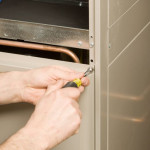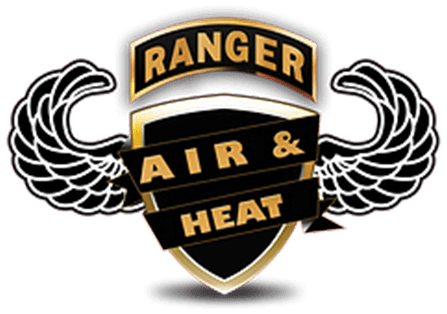New Year, New Heater Installation
As the new year begins, it’s a great time for homeowners to assess whether their heating system needs an upgrade. A new heater can keep their home warm and comfortable during the colder months while significantly improving energy efficiency and lowering utility costs. If a home’s current system is showing signs of wear or struggling to perform, 2025 might be the year for a replacement.
Upgrading to a new heating system when needed is a smart investment that delivers better performance, enhanced efficiency, and peace of mind. But how do homeowners know when it’s time for a change? This post will share common signs that it’s time to replace the heater, some types of heating systems to consider, and the importance of maintaining the heater.
Signs Homes Need a Heater Replacement
 Determining when to replace a heating system can be challenging, but there are clear warning signs that homeowners should watch for:
Determining when to replace a heating system can be challenging, but there are clear warning signs that homeowners should watch for:
- Frequent repairs: If the heater requires constant service calls, the repair costs may outweigh the benefits of keeping it. A new system can save homeowners time, money, and frustration.
- Inefficient heating and high costs: Older heating systems lose efficiency as they age, driving up utility costs. Upgrading to an energy-efficient model can reduce expenses and enhance performance.
- Problems heating: Uneven temperatures, cold spots, or a system that struggles to maintain warmth indicate that the heater may no longer be effective.
- Old age: Common heaters like a furnace have a lifespan of about 15 to 20 years. If the unit is nearing or exceeding this age, it’s time to start considering a replacement.
- Unusual noises or odors: Clanging, rattling, or strange smells can indicate serious internal issues that may be more cost-effective to resolve with a new unit.
Which Type of Heater Is Right for Your House
Selecting the right heating system for a home depends on several factors and what a homeowner is looking for. Some heating system options for homeowners to consider include:
- Furnaces: Forced air furnaces heat air and use ductwork to distribute it throughout the home. They typically have a lower upfront cost and a longer lifespan than heat pumps but have higher operational costs.
- Heat pumps: These systems provide energy-efficient heating and cooling in one system. They have lower operational costs due to their efficiency but cost more upfront. They are also less effective in cold climates than a furnace. Heat pumps can also be used with and without ductwork. Ductless mini split heat pumps don’t need air ducts.
Consulting a professional can help homeowners identify the best system for their homes that best matches their home, lifestyle, and budget.
Reasons to Schedule Heating Maintenance
 Once homeowners invest in a new heating system, regular maintenance is crucial to keep it running efficiently and reliably. Routine upkeep provides several significant benefits:
Once homeowners invest in a new heating system, regular maintenance is crucial to keep it running efficiently and reliably. Routine upkeep provides several significant benefits:
- Extended lifespan: Preventive care minimizes wear and tear, helping the heating system last longer and delaying the need for replacement.
- Reduced repairs: Regular inspections and maintenance reduce the risk of costly and extensive repairs in the future.
- Improved efficiency and lower costs: A well-maintained system is more energy efficient, resulting in lower utility bills and reduced operating costs.
- Increased safety: Maintenance helps reduce the risk of heater problems that can lead to hazards like a gas leak or carbon monoxide leak for a safer home.
Neglecting heating maintenance can reduce efficiency, lead to higher utility bills, more issues and repairs, a shorter lifespan, and even safety risks. So, scheduling regular tune-ups with a professional protects the investment in a new heating system.
About Ranger Air & Heat
Ranger Air & Heat is a veteran-owned business serving the Melbourne, FL area. They offer same-day service, the latest technology, and extended hours. Call them for heater installation and replacement services in Melbourne, FL.






